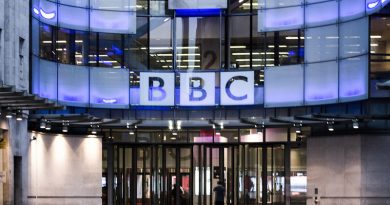Marking and Mediating the Centenary
Posted by: Dr Jenny Kidd

The First World War Centenary media coverage will soon be coming thick and fast, with everybody wanting to carve out their own space for comment, storytelling, and opinion. The next four years promise a range of mediations and ruminations on the war that was to ‘end all wars’.
This week, we saw the BBC kick-start their centenary programming with Jeremy Paxman’s ‘Britain’s Great War’, which has received mixed reporting and reviews in the press . That should not surprise us. How the centenary is to be marked is the subject of intense ongoing socio-cultural, historical, and political debate. Michael Gove’s recent reflections on Blackadder’s place in the ‘teaching’ of our military history, and the noisy debate that ensued on their publication, are a case in point.
In response no doubt to interest in the Centenary of WW1, Maria Miller recently renewed the Westminster Government’s interest, and financial investment, in ‘important anniversaries’. Such anniversaries are hugely significant events within the cultural calendar, not least for museums and other heritage institutions who consider themselves uniquely placed to act as fora for discussion on their emergent themes. Note the range of activities that were carried out in 2007, the Bicentennary of the Anniversary of the Slave Trade Act in the UK; in 2012, for the Centenary of the sinking of the Titanic; in 2014, we will see activity around the 700th Anniversary of the Battle of Bannockburn (and of course the well-timed vote on Scottish Independence), and Ireland and Northern Ireland are in the midst of what has been called their Decade of Centenaries in the lead up to the commemoration of partition. I suspect you could contact any museum in the UK and they will be doing something this year to commemorate the outbreak of war, most likely on or around August 4th. To be seen not participating in this mass moment of remembrance (a phrase we could of course critique) would be strange in the extreme, and worse, bad PR.
In JOMEC there is research being carried out on these themes. The Significance of the Centenary project (with the University of Birmingham, The University of Sheffield, Historic Royal Palaces, the Tower of London, the Cultural Learning Alliance, and the National Library of Wales) is asking questions about why we place such significance on centenary events. What is it about the number 100 that gives such license, such permission? That demands our attention? That encourages re-appraisal and the unraveling of what is accepted as the ‘truth’ of an historical event or its participants? As part of the project’s remit, we have been carrying out an analysis of the preparations for the WW1 centenary both in the press and on social media platforms, seeking to learn more about who is involved in related debates, and who is being silent (or indeed silenced). We will continue this endeavor throughout 2014.
This project is part of a wider ongoing initiative to which I belong; the Challenging History network. Our latest publication, Challenging History in the Museum, addresses a number of related themes, exploring questions about the ethics of heritage work with difficult and sensitive ‘pasts’ and their ‘legacies’. It tackles uncomfortable questions about the place of emotion in heritage work, about collaborative and multimedia endeavor, and about the possibilities and pitfalls involved in trying to ‘teach’ contested subject matters.
Find more information about the book on the publishers website or in JOMEC’s webpage

